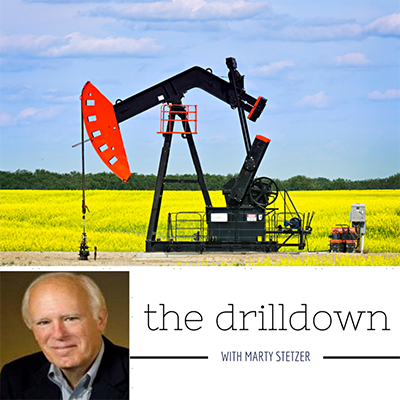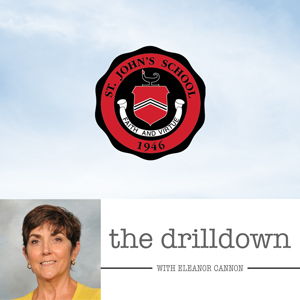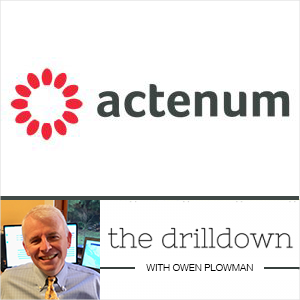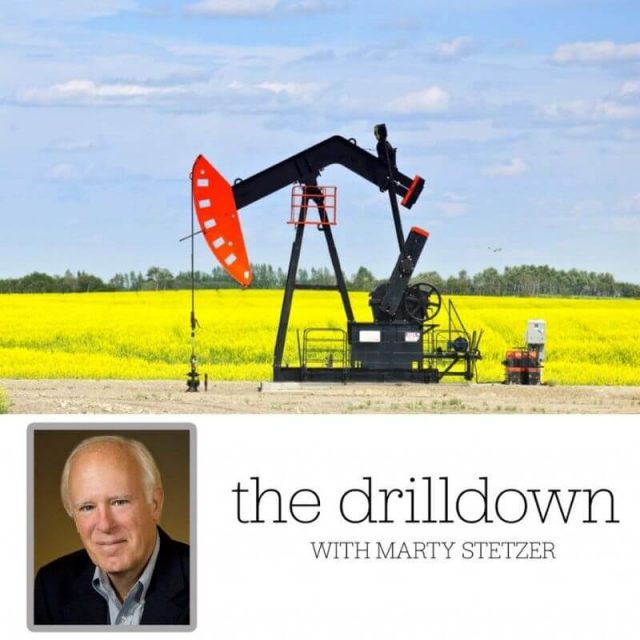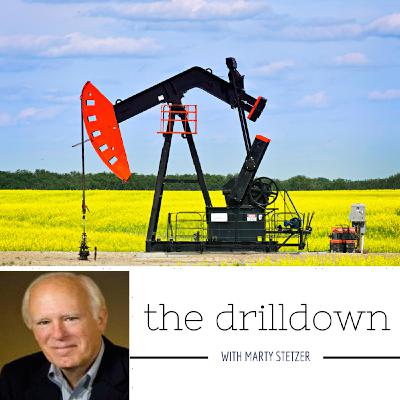Innovations in the Digital Oilfield with Joe Perino
Description
Thanks for listening to the EKT Interactive Oil and Gas Podcast Network.
In this episode, we welcome Joe Perino back to the podcast. Join us for this discussion on innovations in the digital oilfield, part of our Digital Oilfield podcast series.
Remember, our listeners get $400 off the registration price (use code EKT400) to the Upstream Intelligence Data Driven Production Conference. It’s happening in Houston on July 6-7.
About the Experts
Marty Stetzer
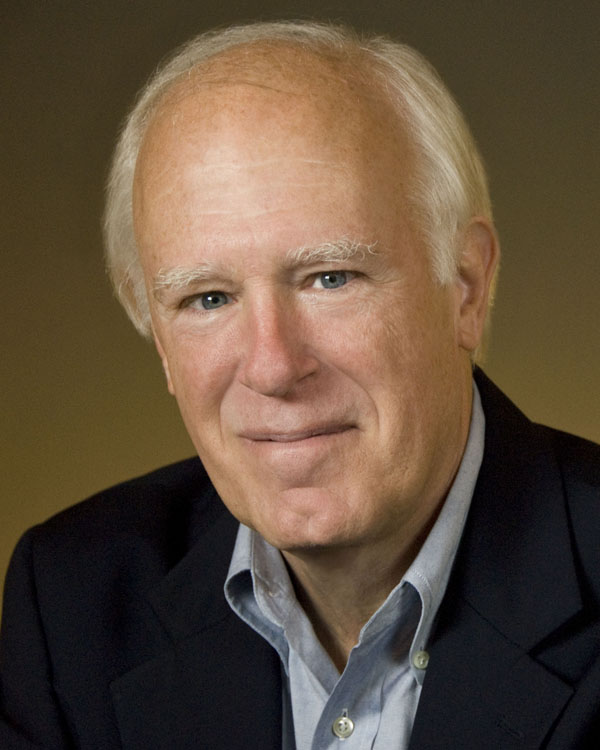 In parallel with his 25-year energy career, Marty has over 15 years experience in providing custom digital training programs to a variety of oil and gas technical audiences like EKT Interactive Oil 101.
In parallel with his 25-year energy career, Marty has over 15 years experience in providing custom digital training programs to a variety of oil and gas technical audiences like EKT Interactive Oil 101.
Marty has been a consultant to U.S. and international oil and gas
companies since 1986, including 13 years with PriceWaterhouseCoopers.
He has 18 years management experience with Schlumberger, Superior Oil-Mobil, Wilson Industries and Exxon.
Marty has worked with numerous national and international oil and gas company managements to help improve business performance across upstream, midstream and downstream operations.
Like many of the team, Marty is active in the Society of Petroleum Engineers and often presents at industry forums.
Joe Perino
 Joe Perino brings 40 years of experience in upstream, midstream and downstream with deep processing industry expertise, a global perspective and training design capabilities.
Joe Perino brings 40 years of experience in upstream, midstream and downstream with deep processing industry expertise, a global perspective and training design capabilities.
Career experience includes:
+Process engineer in the chemicals, refining and pipeline sectors for Phillips Petroleum, Diamond Shamrock and Northern Natural Gas.
+Business development with process automation and technology suppliers Emerson, Honeywell and i2.
+Positions with KBC Advanced Technologies, IBM Global Business Services; Logica North America and Schlumberger Business Consulting.
In this episode, we discuss the latest innovations in digital oilfield technologies, oilfield cybersecurity, and startup companies in this space.
Relevant Links:
Digital Oilfield Podcast Series:
We put together this series of podcasts in conjunction with Upstream Intelligence to bring our listeners up to speed with the latest trends influencing the digital oilfield.
Upstream Intelligence Data Driven Production Conference with Louis Vye
The Digital Oilfield with Tony Edwards of Stepchange Global
Innovations in the Digital Oilfield with Joe Perino
Data Driven Production with Jim Crompton
Timestamps:
[1:15 ] Joe Perino background in upstream, IoT, digital oilfield
[2:40 ] IoT vs Process Automation
[4:45 ] Innovations & Startups – What you’re watching – HTC
[6:30 ] Predictive Analytics – use grows as sensor prices fall and automation grows
[10:20 ] The big players are in
[13:00 ] What upstream production operations can learn from refining and petrochemical segments
[15:55 ] Cybersecurity – trends and challenges
[18:00 ] Last thoughts – IT and operations continue to become closer and more integrated
Transcript:
Hi, everyone. Welcome to the Drill Down with Marty Stetzer. This podcast is part of our EKTI Oil and Gas Learning Network and brought to you jointly today with Upstream Intelligence in the UK.
Upstream Intelligence is the foremost provider of business intelligence and analysis for the Upstream Oil and Gas Community. They’re devoted to providing unique industry insight to drive efficiencies, reduce cost, and maximize production.
Today our topic is data-driven production. With an estimated global value of over $31 billion by 2020, the digital oil field is the oil industry’s hotbed of innovation. Now including big data analytics and the industry internet of things (IOT).
I’ll be speaking with Joe Perino, a longtime friend and industry veteran. Other podcasts with Joe are on his Sound Off channel on our EKT Interactive website.
Joe, as I remember, you were working on a digital oil field project for a major offshore operator when we first met at Schlumberger in 2004. We’re happy to have your input on this new and important part of the business. Joe, welcome.
Thanks, Marty. Good to be here.
Can you give our listeners your extensive industry background, especially as it relates to Upstream Digital Oil Field, IOT, and analytics?
Certainly, Marty. I have a long and varied career. I started as a Process Engineer in the refining and chemicals business. I then worked for a pipeline company Northern Natural Gas. Then after that I left and worked for about 20 years in the process automation industry for a couple small firms as well as Emerson and Honeywell.
That led me to a career in consulting, which took me to IBM, I2, and then a seven year stint with Schlumberger’s business consulting group. That’s where we met where I was working on a Shell smart fields project back in 2004 through 2007. Then, I’ve been working more on the IT side with the development and delivery of services to oil companies and oilfield service companies.
Then about 18 months ago I went back with my own management and technology consulting company. As you know, I’ve been associated with you now for about two years through EKTi.
Joe, thanks for that. You mentioned your extensive experience in the process control side of the business. How is IOT different from traditional control system technology? Or is it really different?
Well, IOT and automation are not quite the same thing. I think it’s an important distinction because when we started entering the digital oil field area, probably around the year 2000 with Chevron, Shell, and some of the other leaders, Saudi Aramco included, we were confusing the difference between automation and the intelligent field.
At that point, many fields were not automated and we needed to take that step to automate them in order to produce real time data.
IOT is different in that it’s about the interconnection of all kinds of devices and people at all levels across the business. It’s not strictly the automation architecture that you might find in an ISA 95 model. Now IOT has opened things up.
Everything out there, whether it’s static or dynamic will have a digital personality. In the case of a device that’s a dynamic device, like a valve or a sensor, obviously they’re going to be producing data. It’s going to be connected to other devices and that may be direct connected, that may be wirelessly connected, that may be connected by the Cloud.
Now the important part of this thing for process automation firms is that this opens up additional capability for them to monitor and control what is going on in the facilities, which is where most of the systems are installed. They’re now using IOT and the Cloud and they brought in predictive analytics to be looking at the health of processes and equipment to improve plant operations. That’s the nuance there.
You’ve seen developments in probably your 13, 14 years of watching this, Joe. What are some of the innovations that you’re now seeing out there? Especially in some of the startup organizations?
Yeah, so I’m glad you mentioned that. One of the things that I’ve been involved with for the last year or so is the Houston Technology Center, which is an incubator for startups. They help energy firms, IT firms, nanotechnology, life sciences, and so forth.
I got introduced to HTC when I was at IBM, and I started following IOT a lot more closely. In particular, all of these startup analytics firms that have popped up and there are literally hundreds of them. I keep a list of around 12 to 15 companies that have surfaced that are addressing the oil and gas space. This is in addition to the larger names like IBM and EMC, Amazon, Microsoft.
It’s interesting to see how these firms are coming to market, where they’re focused, what they do, what value they’re bringing, and how they’re getting traction in the market and, frankly, whether they’ll survive.
We’re still very early in the IOT space and this use of predictive … Pardon me,

